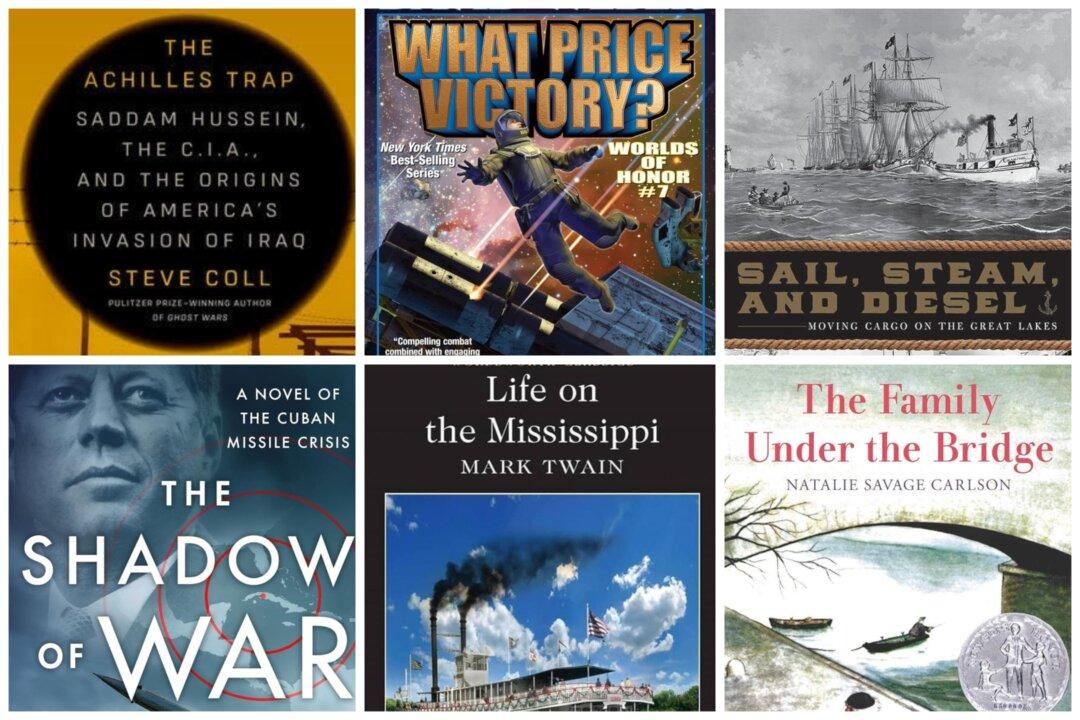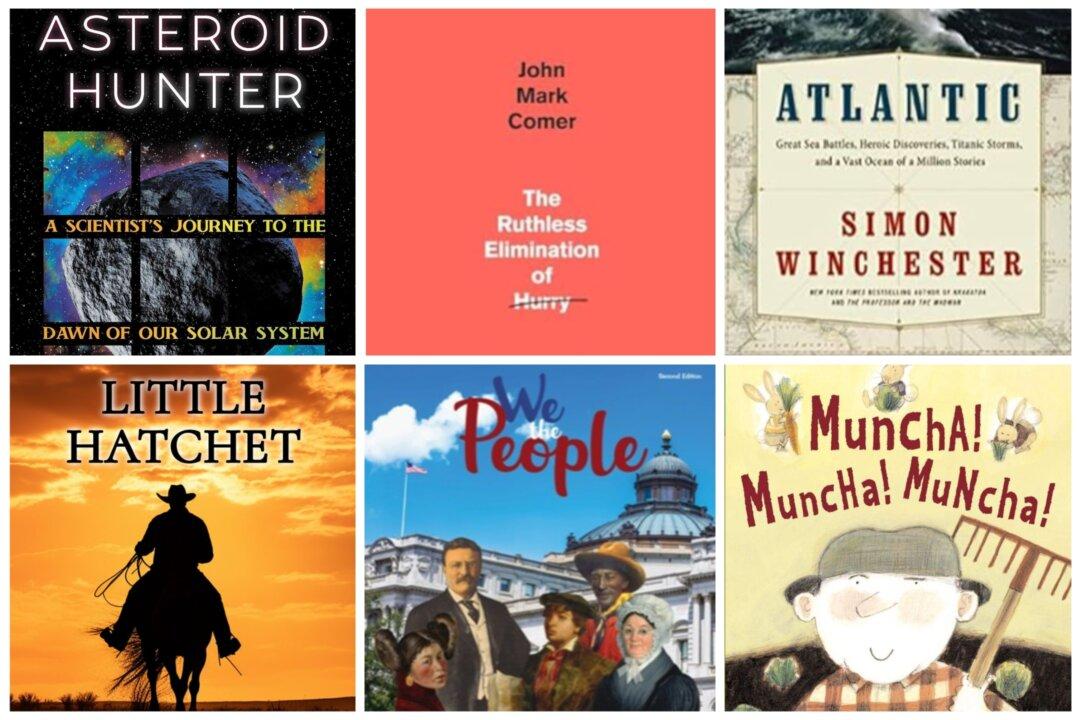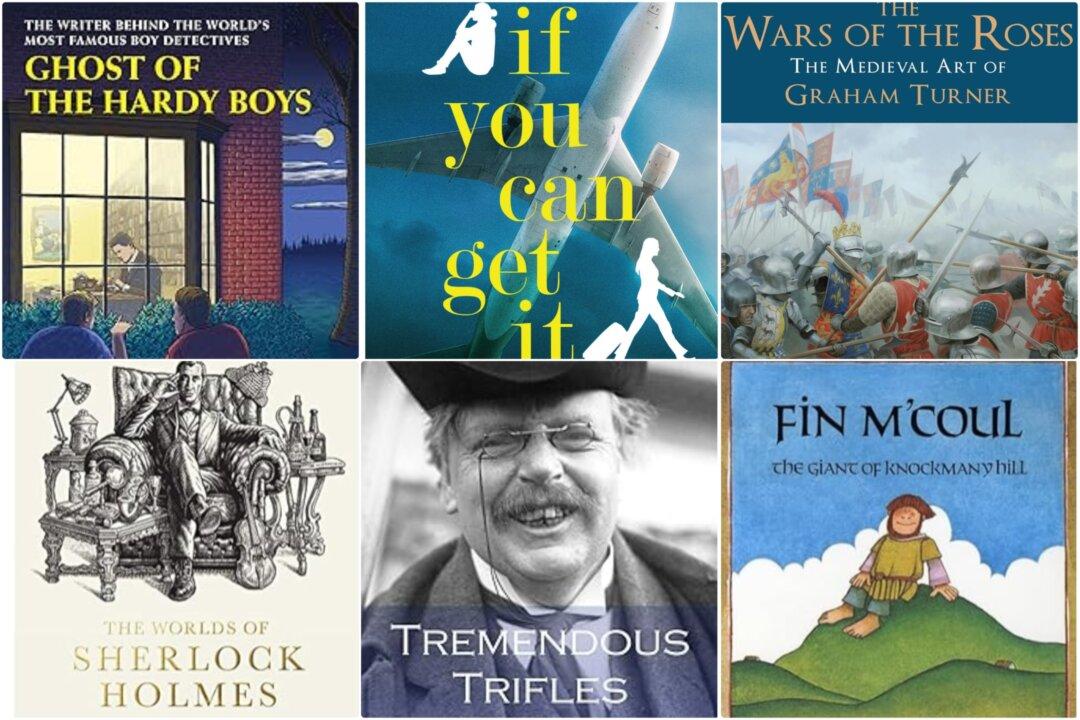As parents, we aim to guide our children to reach their fullest potential. Every child is his or her own unique individual, with strengths and talents unique to each. Helping our children recognize and nurture these gifts is perhaps one of the most beneficial things we can do for them. But how?
I spoke to author and strengths coach Stephanie Moore, whose book “The Gifted Journey, Five Transformative Steps to Uncovering Your Unique Path” aims to help readers live a more rewarding life by uncovering their natural inner strengths.
Moore offered a great deal of advice for parents. Here’s what she said.
The Epoch Times: Do you believe people are born with their most fundamental strengths, or learn them?
Stephanie Moore: I believe we are born with innate talent. I appreciate Gallup’s definition of talent as “our innate way of thinking, feeling, and behaving”—an inborn predisposition.
A strength, on the other hand, is an ability to provide consistent, near-perfect performance in an activity you enjoy. Strengths come from a combination of talent, skill, and knowledge. The clues to [what is] a strength include 1) enjoyment, 2) satisfaction, 3) ease, 4) flow, and 5) recognition.
The Epoch Times: Why do you feel it is important to uncover one’s inner strengths?
Ms. Moore: Simply put, for life satisfaction and enjoyment. In my career coaching practice, I find that many people do not take the time to figure out who they are and what brings them joy and satisfaction. Typically, I will see people when they are in some sort of transition and are unhappy with their life circumstance, and are looking for something more.
The Epoch Times: Your book prescribes fives steps to uncovering your strengths. Can you walk us through those steps?
Ms. Moore:
Discover: In this first foundational step, we take time to really understand the impact and value of your personal gifts, talents, and strength. If you have enjoyed most of your past work experiences, you may already have a solid understanding of where your talents can contribute in different areas of your life. However, if you are like many who’ve come through my coaching sessions, this may be the first time you’ve looked at yourself this closely.
Your assessment of yourself forms the foundation of your Gifted Journey, which is why it’s step one. There are many ways in which we can assess who we are and why. What is most important is to look at this self-assessment information through an objective mindset.
Discern: In this next step, we will look back and reflect on specific, pivotal events in your life to help you understand who you are and what has impacted and defined your life to this point. We will then compare those experiences with the information gained from the exercises in step one (“Discover”) to uncover any patterns and themes as they relate to your personal and professional success and satisfaction. We need a thorough understanding of our past before we can create a path to a more rewarding future.
Dream: In step three, you will take all that you have learned about yourself from “Discover” and “Discern” and look toward the future. This is not an “action” step, but rather a time to dream about all the possibilities and paths going forward.
I like to compare this step to dreaming about the perfect vacation. Where would you love to go and why? Would there be palm trees or ice-capped mountains? Nonstop walking tours through ancient ruins or relaxing days at sea? Or a little of all of the above? How would you feel in your ideal environment? What sorts of activities would you engage in to bring you joy? Like a dream vacation, the third step in your Gifted Journey is to create a vision of the perfect environment for you.
As you can imagine, this is a critical step. Time spent thinking about your ideal future and painting a detailed picture in your mind can truly help your dream manifest itself in reality.
Design: In the fourth step, we will take everything we’ve gathered so far and assemble all the pieces to create the beginning of an action plan to help direct you on your path forward. This is where you will start to think about a tangible goal for yourself and look for practical activities that will move you forward.
Do: This is the action part of the plan—the commitment to take that next step in your journey and move one step closer toward your goal. By now, the first four steps of the process should be moving you toward a logical path, and in this fifth and final step, we will put our assessments, introspection, dreams, and designs into action!
The Epoch Times: Do you recommend parents guide their children to uncover their strengths? What are the benefits of understanding one’s strengths at a young age?
Ms. Moore: I believe that parents can play a critical role in recognizing and helping their children identify their strengths. First, it is being aware of what sort of activities their children gravitate toward, what they are good at, and what they seem to enjoy.
I especially think it is important to encourage children to dream about the things they want to do in the future without censoring their dreams. Instead, find out the “why” behind their dreams. If they say they want to be a teacher or a singer or an actor, find out why. What is it about that dream that seems exciting or fun? The benefit is that it builds confidence in children. It makes them feel strong and secure in knowing who they are and where they excel.
The Epoch Times: How can parents help their children recognize their innate strengths?
Ms. Moore: I think the main way to recognize children’s innate strengths is to watch their behavior and how they approach tasks and activities. Specifically, where do they excel, or where are they better than most?
Watch their thought process and where they tend to pick up ideas or activities easily. Similar to how we coach adults, ask children what they like to do, what subjects they enjoy most, what seems to come easily to them. Where do they get good grades? As parents, we may be tempted to focus on the weaknesses (the “C” on the report card). Instead, celebrate the “A’s” and “B’s.” Find out what they most enjoy about those subjects.
The Epoch Times: How can parents foster and further develop their children’s strengths?
Ms. Moore: The best way to foster and develop strengths is by finding more opportunities to use them. Once you identify something that a child is good at and enjoys, find ways in which they can grow their skill and knowledge in those areas. This will tell you whether it is a true strength or not. It should be something they enjoy and in which they have ability.
The Epoch Times: What are the common consequences of not understanding one’s strengths?
Ms. Moore: The biggest consequence is an unhappy and dissatisfied life. Many people describe it as feeling lost, having no path, feeling discouraged, or lacking purpose.
I have also experienced, first-hand, some of the more serious consequences [it] can [have] on our mental and physical well-being. I mention in the book being in a role that was not suited for me, but I stayed in it longer than I should have and ended up with an ulcer and severe nose-bleeds, along with other serious health concerns. It took my physician telling me to quit my job because it was “literally killing me.”
While that is an extreme case, I think that we tend to repeat our choices if we don’t have an idea of who we are and where we want to go.
The Epoch Times: If someone reading this wants to begin to uncover their own strengths, what is the first thing you would tell them to do?
Ms. Moore: The first step would be to actually do the first step in the Gifted Journey process, and that is to take time to assess [yourself].
There are a number of exercises outlined in the book. One of my favorites is “Good Day/Bad Day” and then “Best Day.” Sometimes, simple exercises like these can start to highlight where your strengths lie.
The next step would be to seek out a mentor, coach, or trusted adviser to help with your assessment process. This can provide additional guidance and insight.
The Epoch Times: What motivates you to continue your work in this area?
Ms. Moore: What motivates me is helping people gain insight into who they are and what brings them joy, satisfaction, and a sense of purpose. It is seeing the excitement of self-awareness that happens as people go through the process. Ultimately, it’s seeing [people] come alive with their own self-knowledge.
Interview edited for clarity and brevity






Friends Read Free